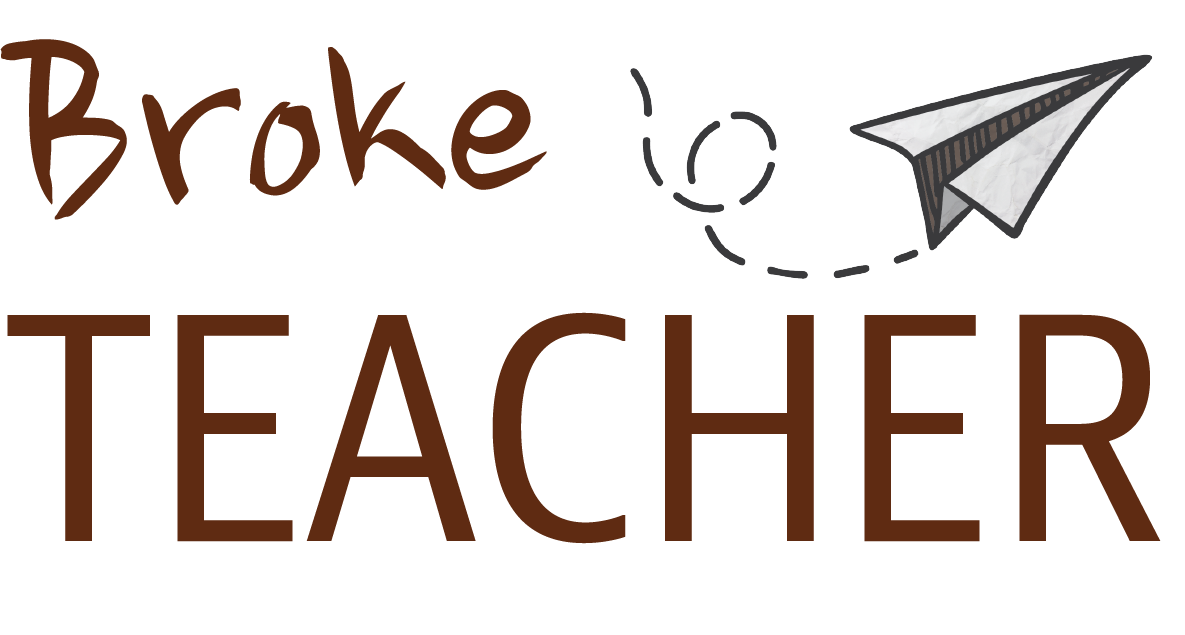Teachers–how much money from your last paycheck did you give back to your job? Stop spending–before it’s too late!
It’s prom season. ($40)
“Can your department donate a basket to our fundraiser?” ($10)
“Dress down day.” ($10/month)
Hosting a breakfast before testing. ($10-$30)
Random fundraisers ($20-30 a month)
Classroom supplies not in the budget (hundreds of dollars a year)…
The IRS allows teachers to deduct $250 of their classroom expenses. Chances are, you spend way more than that.
“I spend a thousand,” said a teacher I was speaking with the other day. A Manhattan teacher I talked to while researching my upcoming book “A Broke Teacher’s Guide to Success” spends almost five thousand a year–then crowdfunds the rest.
That’s insane!
Stop spending today!
If you’re trying to be financially successful, you must stop spending your paycheck on your job today.
In every other job on the planet, people go to work and get paid, then use their paychecks to pay their bills and save for their future. Jobs provide supplies and equipment to get the work done.
Teachers are the opposite. We go to work, donate their paychecks to work causes, then steal supplies from home–and bring them to work.
If you do this regularly, you’ll never achieve financial freedom. It’s that simple.
What may seem like “it’s only ten dollars” today compounds and subtracts from your future. At a time where the majority of Americans are deep in debt and not even close to ready for retirement, saying no isn’t selfish, it’s a necessary part of achieving financial wellness.
How do you say no when everyone needs something?
….Easy. Memorize lines like a Hollywood actor.
Practice saying these things in the mirror at home. Then, then next time your someone asks you to buy cookies for their kid’s sale, a student hands you their club fundraiser pledge sheet, or people ask for your share of a department donation to a worthy cause, you’ll be ready.
- “Giving is personal for me. I choose to give privately to causes I already work with.”
- “I have a strict ‘no spend’ rule at work since everyone has something great they’re working on and I really love everyone’s projects and good deeds. I could never choose.”
- For the more persistent fundraisers: “No thank you. I have a policy that I don’t spend my paycheck on my job.”
- Or simply, “No” or “No thank you.” You really don’t owe anyone an explanation.
If all else fails and you can’t say no, do this: never carry cash. Then you can say, “Sorry, I don’t have any cash.” When someone says “I can collect tomorrow,” repeat the mantra. “I don’t carry cash.”
Don’t feel guilty about that “no.”
If you’re a teacher, that’s easier said than done–I always feel guilty. People sometimes get offended or upset that I’m not doing my fair share to contribute. A few don’t take no for an answer, which makes me feel even more pressured. Also, I empathize deeply. “If that were me, I’d want help.”
As teachers, we’re programmed to say yes and worry about the consequences later. We’ll juggle our own bills to help others. “I’ll catch up next month,” we say.
This is the wrong strategy for reaching financial goals.
Is there a time I can say yes? How do I know?
In order to answer that question, I look deep into my bank account and ask these questions:
- Are all my bills paid with money left over?
- Is my retirement and savings taken care of properly?
- Do I have an acceptable emergency fund?
- Have I saved for any expenses coming down the road?
If the answer is “yes” to all these questions–every single one–then I’m in a position to donate and give. I can set aside a budget for funding, helping, and donating.
However, if the answer is no to even one of those questions, the answer must be no to outside giving until I can make those answers “yes.”
Abraham Lincoln gets credit for saying, “You can’t help the poor by becoming one of them.” Although he probably didn’t say that, the wisdom behind it is true. There will always be someone in need, but unless I stop spending and attend to my financial wellness, I’ll never get where I want to go.
It’s not harsh–it’s tough love and simple math.
What do I do if I still want to help others?
Money’s not the only way to give–there are three ways: time, talent, and treasure. If “treasure” isn’t an option right now, use your time and talent instead.
- Send a card
- Make something
- Volunteer to work the event
- Send a message of support
- Check in
- Offer to listen
- Help out or ofter advice
- Bring a cup of tea
You may not be able to give that ten or hundred dollar donation, but you can always be thoughtful, smile, and show you care in other ways.
As I started doing more of that type of giving and less giving out of my own pocket, I noticed something–no student cared about me less. In fact, they were just as grateful, if not more.
Anyone who doesn’t understand you “no” or want the best for you–including your financial wellness–isn’t worth keeping in your inner circle. Remember that. Find a few kindred spirits who also commit to financial wellness, and achieve your financial goals together.
This advice isn’t just for you–it’s for every student watching you.
You, after all, are the example for them. Show students good habits–a path to happiness, balance and success–how you worked to get to the top of the mountain, and how they can achieve their financial goals, too.
